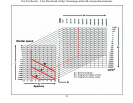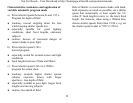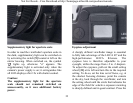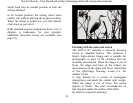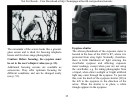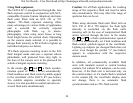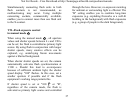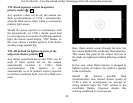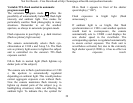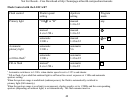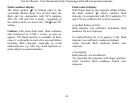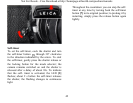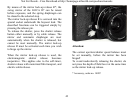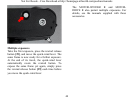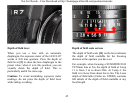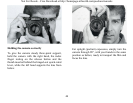
Not For Resale
–
Free Download at
http://homepage.ntl
world.com/joechan/
manuals
39
Variable TTL-flash control in automatic
program mode
P
The automatic program mode
P
offers the
possibility of automatically balancing flash light
intensity and ambient light. This makes for
particularly carefree flash photography in many
situations. Remember to set the smallest
aperture, as always in automatic program mode.
Flash exposures in poor light, e. g. dark interiors
(flash as primary light source):
The camera automatically selects flash syn-
chronization at 1/100 s and f-stop 5.6. The flash
acts as primary light source to lighten the subject
and is controlled via the camera's TTL-flash
exposure control.
Fill-in flash in normal light (flash lightens up
darker parts of the subject):
The camera sets to flash synchronization at 1/100
s; the aperture is automatically regulated
depending on ambient light. This would produce
correct aggregate exposure even without flash.
Now the camera moderates flash intensity to
lighten up shaded parts of the subject (e.g. in
backlighting situations) while not affecting the
ambient light. To indicate this, the symbol for
fill-in flash V appears in front of the shutter
speed display ("100").
Flash exposures in bright light (flash
unnecessary):
If ambient light is so bright, that flash
synchronization at 1/100 s and smallest aperture
would lead to overexposure, the camera
automatically sets to 1/2000 s and displays the
new shutter speed in the viewfinder. The
corresponding aperture is regulated automatically
to ensure correct exposure. The flash unit is
nevertheless activated, but, due to the extremely
high shutter speed (1/2000 s), it has no effect on
the exposure result.



